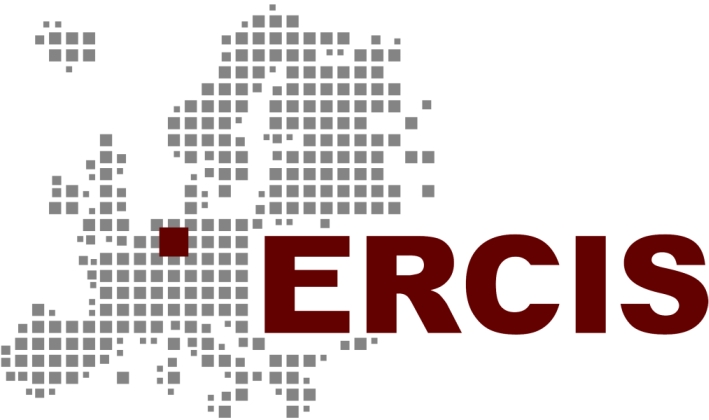The Polish Chapter of Association for Information Systems
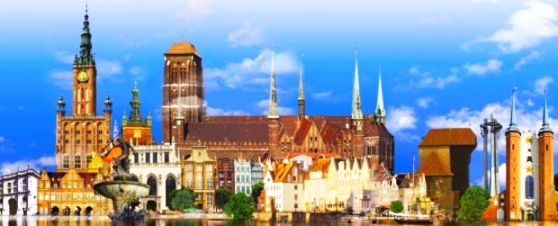
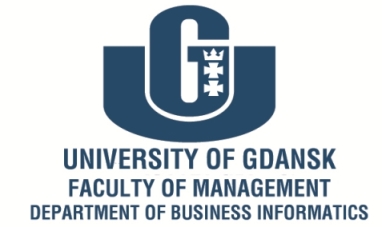
The 9th SIGSAND/PLAIS EuroSymposium
on Systems
Analysis and Design
Information Systems:
Development, Research, Applications, Education
September 29, 2016
Gdansk & Sopot - Poland
Background
Systems analysis and design (SAND) has been the central field of research and education in the area of Management Information Systems (MIS) or, as it is called still more frequently in Europe – Business Informatics, almost from its origins. SAND continuously attracts the attention of both academia and business. The rapid progress of information and communication technology naturally generates the requirements for new generations of SAND methods, techniques and tools. Therefore, international thematic conferences and symposia have become widely accepted forums for exchanging of concepts, solutions and experiences in SAND. In particular, the Association for Information Systems (AIS) is undertaking the initiative towards SAND’s international development.
Therefore, there are three organizers of the 9th EuroSymposium on Systems Analysis and Design are as follows:
SIGSAND
is the Association for Information Systems (AIS) Special Interest Group on Systems Analysis and Design. SIGSAND provides services such as annual symposia, news, research and teaching tracks at major IS conferences, listserv and special issues in journals. The EuroSymposia were initiated by the past AIS Vice President Prof. Keng Siau as the SIGSAND-Europe Initiative.
The Polish Chapter of Association for Information Systems (PLAIS) was established in 2006 as the joint initiative of Prof. Claudia Loebbecke, University of Cologne, Germany, former President of AIS and Prof. Stanisław Wrycza, University of Gdansk, Poland. PLAIS co-organizes international and domestic conferences on systems analysis and design as well as on Business Informatics and Systems Engineering.
The Department of Business Informatics of the University of Gdansk is conducting intensive teaching and research activities. Some of its academic manuals are bestsellers in Poland. The Department is also active internationally, organizing conferences including the 10th European Conference on Information Systems (ECIS 2002), The 7th International Conference on Perspectives in Business Informatics Research (BIR 2008), The 8th International Conference on European Distance and E-learning Network (EDEN 2009) and 24th Conference on Advance Information Systems Engineering (CAiSE 2012). The Department is the partner of the European Research Center for Information Systems (ERCIS) consortium.
Overview
The EuroSymposium on Systems Analysis and Design has the objective of promoting and developing high quality research on all issues related to systems analysis and design (SAND). It provides a forum to researchers and practitioners in SAND in Europe and beyond – to interact, collaborate and develop the systems analysis and design area. The EuroSymposium is currently headed by the Advisory Board consisting of prominent researchers to guide this initiative.
Previous EuroSymposia were held at:
- University of Galway, Ireland – 2006
- University of Marburg, Germany – 2008
- University of Gdansk, Poland – 2007, 2011, 2012, 2013, 2014, 2015
- 2nd EuroSymposium 2007: A. Bajaj, S. Wrycza (eds), Systems Analysis and Design for Advanced Modeling Methods: Best Practises, Information Science Reference, IGI Global, Hershey, New York, 2009
- 4th EuroSymposium 2011: S. Wrycza (ed) 2011, Research in Systems Analysis and Design: Models and Methods, series: LNBIP 93, Springer, Berlin 2011
- Joint Working Conferences EMMSAD/EuroSymposium 2012 held at CAiSE'12: I. Bider, T. Halpin, J. Krogstie, S. Nurcan, E. Proper, R. Schmidt, P. Soffer, S. Wrycza (eds.) 2012, Enterprise, Business-Process and Information Systems Modeling, series: LNBIP 113, Springer, Berlin 2012
- 6th SIGSAND/PLAIS EuroSymposium 2013: S. Wrycza (ed.), Information Systems: Development, Learning, Security, Series: Lecture Notes in Business Information Processing 161, Springer, Berlin 2013
- 7th SIGSAND/PLAIS EuroSymposium 2014: S. Wrycza (ed.), Information Systems: Education, Applications, Research, Series: Lecture Notes in Business Information Processing 193, Springer, Berlin 2014
- 8th SIGSAND/PLAIS EuroSymposium 2015: S. Wrycza (ed.), Information Systems: Development, Applications, Education, Series: Lecture Notes in Business Information Processing 232, Springer, Berlin 2015
Relevant topics
- Agile Methods,
- Big Data,
- Business Intelligence,
- Business Process Modeling,
- Cloud Computing,
- Congnitive Issues in SAND,
- Conceptual Modeling,
- Crowdsourcing Models,
- Design of Mobile Applications,
- Design Theory,
- Empirical Studies in SAND,
- Enterprise Modeling,
- Ethical and Human Aspects of IS Development,
- Human-Computer Interaction,
- Information Systems Development: Methods and Techniques,
- Internet of Things,
- Knowledge Management,
- Model-Driven Architecture,
- Modeling Languages,
- Ontological Foundations of Systems Analysis and Design,
- Open Source Software (OSS) Solutions,
- Project Management,
- Rapid Systems Development,
- Requirements Engineering,
- Research Methodologies in SAND,
- SAND in ERP and CRM Systems,
- SCRUM Methodology,
- Security Issues in Systems Analysis and Design,
- Service-Oriented Architecture (SOA),
- Social Media, Networking and Analytics,
- Teaching Systems Analysis and Design,
- UML, SysML, BPMN,
- Workflow Management.
Organizers
- AIS SIGSAND - Special Interest Group on Systems Analysis and Design of Association for Information Systems
- PLAIS - Polish Chapter of Association for Information Systems
- Department of Business Informatics, Faculty of Management of University of Gdansk
^^^ Back to topConference Committees
General Chair
Stanisław Wrycza, University of Gdansk, Poland
Advisory Board
Wil van der Aalst, Eindhoven University of Technology, The Netherlands
David Avison, ESSEC Business School, France
Joerg Becker, University of Muenster, Germany
Jane Fedorowicz, Bentley University, USA
Dimitris Karagiannis, University of Vienna, Austria
Julie Kendall, Rutgers University, USA
Helmut Krcmar, Technische Universität Muenchen, Germany
Claudia Loebbecke, University of Cologne, Germany
Keng Siau, Missouri University of Science and Technology, USA
International Programme Committee
Stanisław Wrycza, University of Gdansk, Poland - chairman
Eduard Babkin, Higher School of Economics, Moscow, Russia
Akhilesh Bajaj, University of Tulsa, USA
Palash Bera, Saint Louis University, USA
Patrick Y.K. Chau, The University of Hong Kong, China
Petr Doucek, University of Economics, Prague, Czech Republic
Rolf Granow, Luebeck University of Applied Sciences, Germany
Bjoern Johansson, Lund University, Sweden
Kalinka Kaloyanova, Sofia University, Bulgaria
Vijay Khatri, Indiana University Bloomington, USA
Marite Kirikova, Riga Technical University, Latvia
Jolanta Kowal, University of Wroclaw, Poland
Tuomo Lindholm, Lapland University of Applied Sciences, Finland
Tim Majchrzak, University of Agder, Norway
Yannis Manolopoulos, University of Thessaloniki, Greece
Nikolaus Obwegeser, Aarhus University, Denmark
Jinsoo Park, Seoul National University, Korea
Nava Pliskin, Ben-Gurion University of the Negev, Israel
Jolita Ralyte, University of Geneva, Switzerland
Michael Rosemann, Queensland University of Technology, Australia
Isabel Ramos, The University of Minho, Portugal
Kurt Sandkuhl, The University of Rostock, Germany
Thomas Schuster, Forschungszentrum Informatik, Karlsruhe, Germany
Marcin Sikorski, Gdansk University of Technology, Poland
Piotr Soja, Cracow University of Economics, Poland
Angelos Stefanidis, University of Glamorgan, UK
Reima Suomi, University of Turku, Finland
Janice C. Sipior, Villanova University, USA
Pere Tumbas, University of Novi Sad, Serbia
Yinglin Wang, Shanghai University of Finance and Economics, China
H. Roland Weistroffer, Virginia Commonwealth University, USA
Carson Woo, Sauder School of Business, Canada
Jelena Zdravkovic, Stockholm University, Sweden
Iryna Zolotaryova, Kharkiv National University of Economics, Ukraine
Joze Zupancic, University of Maribor, Slovenia
Organizing Committee
Chair: Stanisław Wrycza
Secretary:Anna Studzinska
Members: Dorota Buchnowska, Bartłomiej Gawin, Bartosz Marcinkowski, Jacek Maślankowski, Przemyslaw Jatkiewicz, Michał Kuciapski
^^^ Back to top
PROGRAM
| 8:00 - 9:00 | Registration |
| 9:00 - 9:15 | |
|
Welcome Stanisław Wrycza - General Chair of SIGSAND/PLAIS EuroSymposium |
|
| 9:15 - 10:35 | Session Ia – Information Systems Development |
| Contractual Specification of Communication Tools in Outsourced ISD
Projects Sonia Gantman, Jane Fedorowicz, Bentley University, Providence College, USA | |
| Weighted Evaluation Framework for Cross-Platform App Development
Approaches Tim A. Majchrzak, Christoph Rieger, University of Cologne, Germany | |
| Exploring ontological approach for user requirements elicitation in design of
online virtual agents Katarzyna Ossowska, Liliana Szewc, Paweł Weichbroth, Igor Garnik, Marcin Sikorski, Technical University of Gdańsk, Poland | |
| Documenting agile architecture: practices and recommendations Mirjana Maric, Predrag Matkovic, Pere Tumbas, Veselin Pavlicevic, University of Novi Sad, Serbia | |
| 10:35 - 11:00 | Coffee break |
| 11:00 - 12:00 | Session Ib – Information Systems Development |
| Architectural Element Points: Estimating Software Development Effort by
Analysis of Logical Architectures Luis Alves, Pedro Ribeiro, Ricardo Machado, Polytechnic Institute of Bragança, Portugal | |
| Business models of Internet of Things Dariusz Kralewski, University of Gdańsk, Poland | |
| Towards De-Duplication Framework in Big Data Analysis. A Case Study Jacek Maślankowski, University of Gdańsk, Poland | |
| 12:00 - 13:00 | Session II – Information Systems Management |
| Mapping Between Artefacts and Portfolio Processes from the PMI Standard for
Portfolio Management Ana Lima, Paula Monteiro, Aldora Gabriela Fernandes, Ricardo Machado, ALGORITMI Research Centre/CCG-ZGDV Institute | |
| Solving Problems during an Enterprise System Adoption: Does Employees’
Age Matter? Ewa Soja, Piotr Soja, Grażyna Paliwoda-Pękosz, Cracow University of Economics, Poland | |
| Project Management in International IT Ventures – does the Practice Go
Hand in Hand with Theory? Bartosz Marcinkowski, Bartłomiej Gawin, University of Gdańsk, Poland | |
| 13:00 - 14:00 | Lunch |
| 14:00 - 15:20 | Session III – Information Systems Learning |
| Students acceptance of m-learning for higher education – UTAUT model
validation Michał Kuciapski, University of Gdańsk, Poland | |
| Computer Science Studies in English from the Perspective of Students and
Business Marek Milosz, Elzbieta Milosz, Technical University of Lublin, Poland | |
| Does Human Potentiality Affect IT Professionals’ Organizational Behavior?
An Experimental Study in Poland and Germany. Jolanta Kowal, Alicja Keplinger, Juho Mäkiö, Ralph Sonntag, University of Wroclaw, Poland, University of Applied Sciences, Emdeen-Leer, Germany | |
| Information Society in Poland - similarities and differences in the
perception of ICT between generations Jacek Wachowicz, WSB University, Poland | |
| 15:20 - 16:00 | Coffee break |
| 16:00 - 17:30 |
KEYNOTE SPEECH The Bright Internet as the Next Generation Internet Platform Prof. Jae Kyu Lee, Korea Advanced Institute of Science and Technology |
| 19:00 | Dinner |
To be announced.
^^^ Back to top
Keynote Speech
To be announced soon.
^^^ Back to top
Publication
All submissions will be reviewed by the EuroSymposium International Programme Committee for contribution to the relevant topic. The accepted papers will be published as EuroSymposium 2016 Proceedings in the Springer series of Lecture Notes on Business Information Processing (LNBIP).

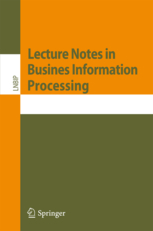
The series is indexed/abstracted by ISI Proceedings, Web of Knowledge, DBLP, EI and Scopus and the other important indexing services.
Important Dates
| Submission of Manuscripts: | May 29, 2016 |
| Notification of Acceptance/Rejection: | June 26, 2016 |
| Final Paper Submission: | July 10, 2016 |
| EuroSymposium 2016: | September 29, 2016 |
EuroSymposium Fees
The regular EuroSymposium fee is 80 EUR (360 PLN), while the fee for videoconference participants is 30 EUR (135 PLN). The fee includes:
- a copy of Springer LNBIP Proceedings,
- participation in all EuroSymposium sessions,
- lunch,
- coffee breaks,
- dinner in European Solidarity Centre.
After registration please transfer the registration fee at the following EuroSymposium 2016 account:
University of Gdansk
Address: ul. Bazynskiego 8, 80-309 Gdansk
EuroSymposium 2016
PL 59 1240 1271 1111 0010 4368 2415
Bank PEKAO S.A. IV o/Gdansk
Kolobrzeska 43
SWIFT: PKOPPLPW
Bank Sort Code: 12 40 12 71
IBAN: PL 59 1240 1271 1111 0010 4368 2415
VAT UE PL 584 020 32 39
Please include a "K205-16 - ES_2016 (name) (surname)" phrase in the text of your bank transfer. ^^^ Back to top
Submission Service
IS faculty members, independent scholars, doctorants and SAND practitioners are invited to submit research papers in the area of systems analysis and design. Given the broad range of topics in this Call, submissions can be based on any range of SAND research. The length limit of completed research paper is 5,000 words.
Papers should be submitted in PDF and doc format. Submissions must conform to Springer's LNBIP format which can be found under instructions for LNBIP Authors at:
http://www.springer.com/series/7911.
Three to five keywords characterizing the paper should be indicated at the end of the abstract.
On-line submission will be offered for EuroSymposium’2016 at Springer Online Conference Service (OCS).
https://ocs.springer.com/ocs/home/EuroSymposium2016
Venue
The EuroSymposium will be held in the modern building of the Conference Centre of the Faculty of Management of University of Gdansk. Computer access, wireless facilities and multimedia projector will be available. Proximity of the Gdansk Lech Walesa Airport makes the selected venue as well as the variety of hotels a proper place for the conference.
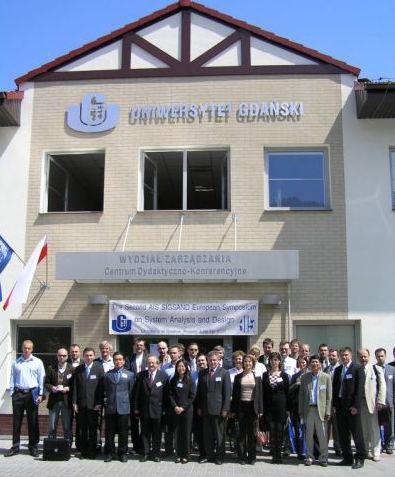 |  |
Department of Business Informatics
Faculty of Management
University of Gdansk
Piaskowa 9
81-864 Sopot
Poland
Ph.: +48 58 5231400
Fax: +48 58 5231155
E-Mail: info@eurosymposium.eu
Accommodation
Hotels of different standards are available in Gdansk and Sopot:
Hotels - Sopot
Hotels - Gdansk
Public Transport information (with guidance to the Venue building) can be found at JakDojade.pl or via mobile version: M.JakDojade.pl
Here you can find information how to get from airport in Gdansk to the city.
A taxi rank is located in front of the main entrance to the passenger terminal and is serviced by CITY PLUS TAXI.
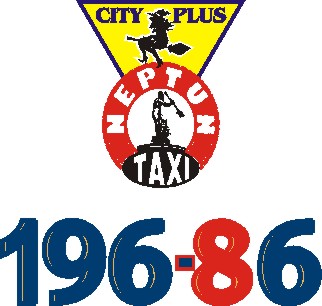
Phone: 585 111 555
Magic of Gdansk
"Everyone walking the streets of Gdańsk for the first time is surprised by the extreme beauty with which the city has been laid out and the rare splendour and luxurious sumptuousness that are manifest everywhere. What in Gdańsk enchants most are not the churches, although among these one can find much that is worth attention, but the very foundations of the city and the way in which its power and the riches of its burghers have been embodied in its architecture".
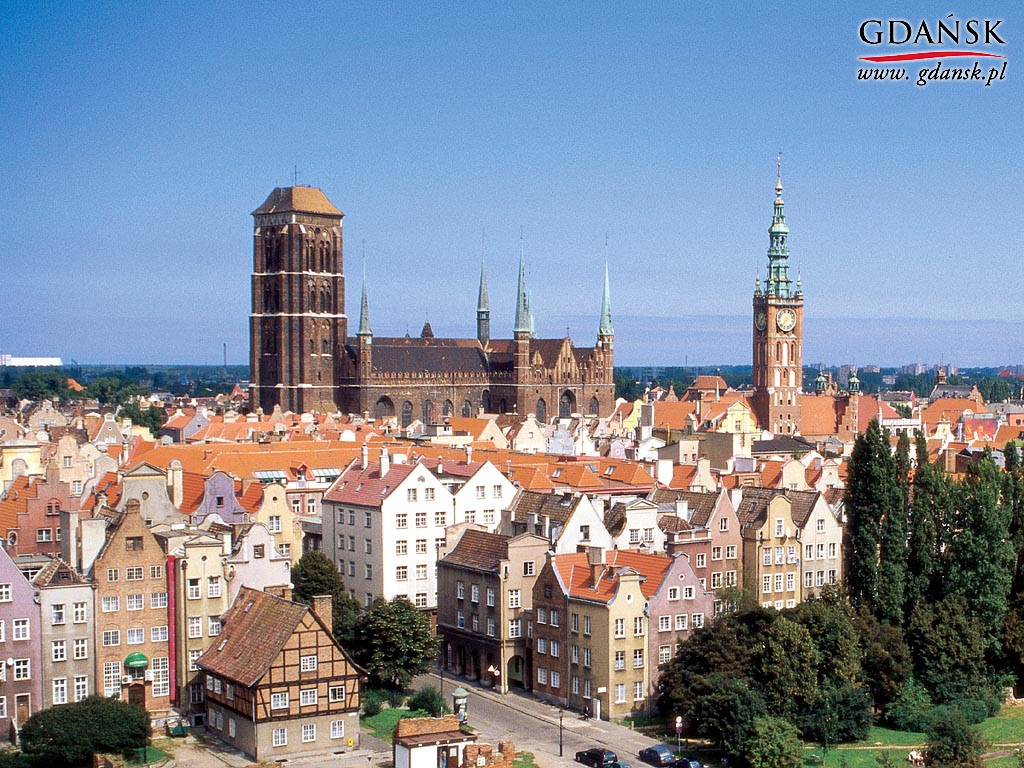
Views such as these may be found not only in any poem in praise of the beauty of Gdańsk but also in scientific monographs on the history of European architecture. When serious scientists use the language of poetry there can be but one reason: a real admiration of the city's beauty. Gdańsk has always evoked admiration and love. We find them in expert treaties, travellers’ tales and the reminiscences of former inhabitants forced to leave the city to live afar. Similar reactions are also to be seen today. Anyone who has, if only once, shown Gdańsk to newcomers has been able to experience it. The visitors absorb its immortal beauty without analysing it or wondering what is authentic and what was reconstructed after the terrible destruction of the last war. They commune directly with the history and draw joy and satisfaction from it. This is the best proof of the rightness of the concept of reconstruction as accepted half a century ago.
A great attraction of Gdańsk lies in its old traditions. It is pervaded by its long and often dramatic history, from the visit of St. Adalbert in 997 to the great celebration of its millennium. Its history is present in its old documents and architectural landmarks, in its science and culture and in the everyday life of its people.
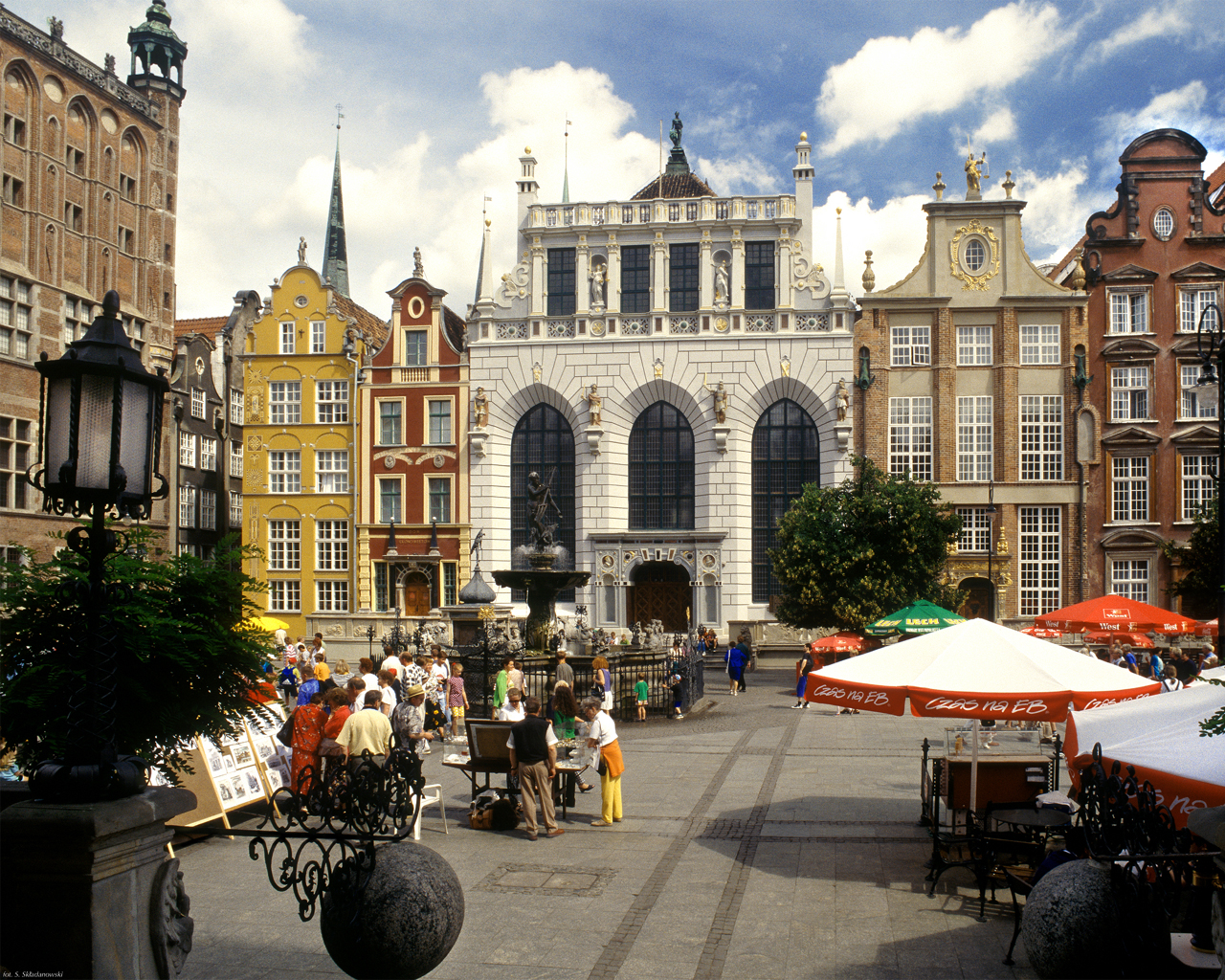
The traditional love of freedom has remained ever alive, revealed equally strongly in the 15th century, when the burghers of Gdańsk shook off the yoke of the Teutonic Knights, and in the times of "Solidarność", when they successfully revolted against the Communist system. Its spiritual power was manifest in the achievements of the pioneers of science from Gdańsk, including such distinguished men as the astronomer Jan Hevelius, the physicists Gabriel Fahrenheit and Daniel Gralath and the philosopher Arthur Schopenhauer. Had they lived in the 20th century, these would have been Nobel prize-winners like their successors, the biochemist Adolf Butenandt, the fighter for freedom Lech Wałęsa and the man of letters Günter Grass.
Gdańsk has always had its outstanding artistic creators of brick, stone and amber masterpieces. The city was and is the world's amber capital. The most famous achievement of the masters from Gdańsk was the Amber Chamber, unfortunately lost in the last war.
The scientific and artistic traditions of Gdańsk have been maintained and developed by its nine institutions of higher education with their 700 professors and 55,000 students.
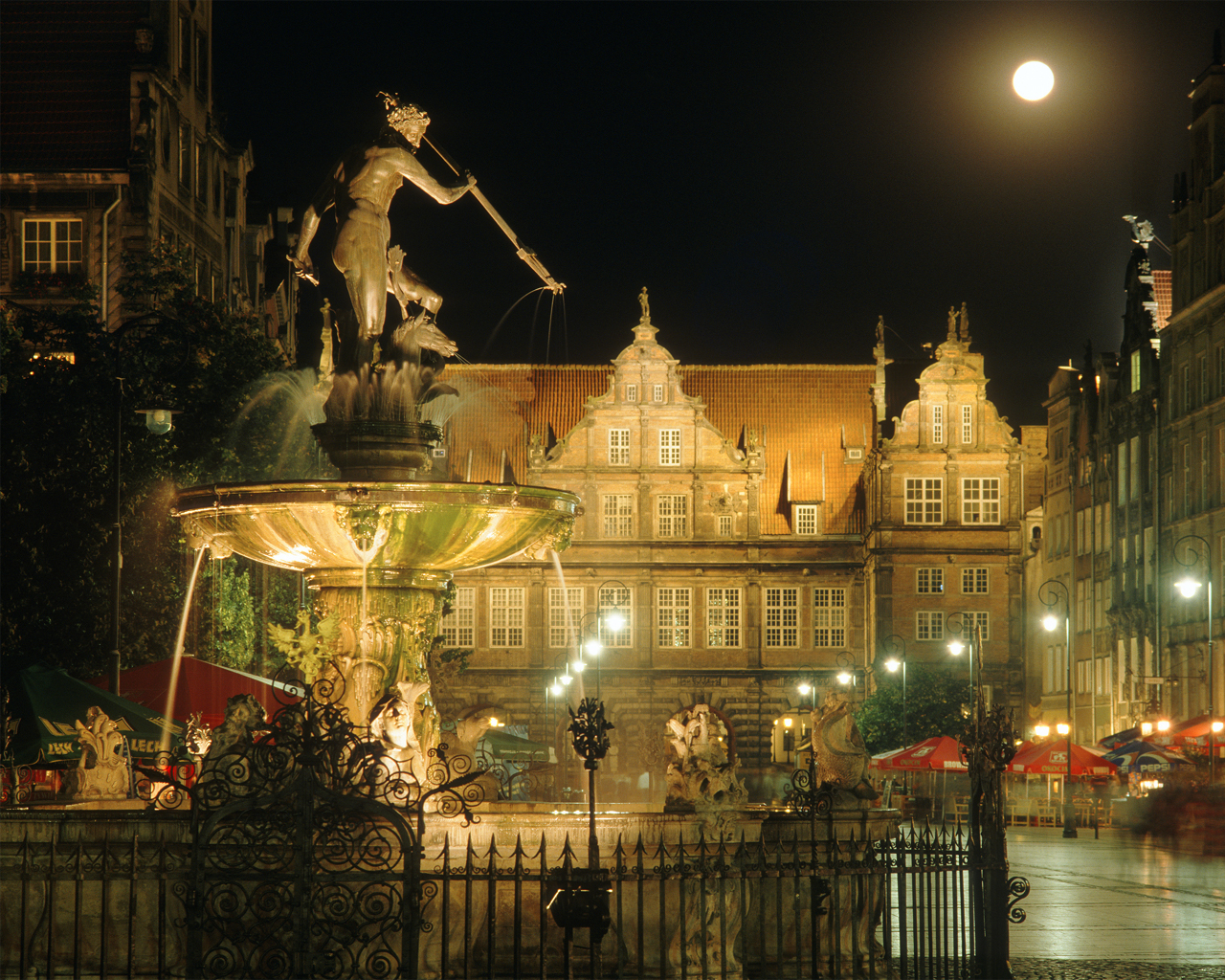
What is the secret of this magic of Gdańsk? The city is unique. It is not only its art and architecture that are beautiful but also its surroundings. It is situated at the junction of three geographical regions: the Kashubian Uplands, which reach 300 m in height, the Lowlands of Żuławy, the Polish “Holland” with depressions of more than 1m below sea level, and the sandy beaches of the sea shore, known as the Amber Coast, since amber really can be gathered along it. Gdańsk combines the triple beauty of landscape, architecture and history, as well as being a busy seaport and a centre of science, education, industry and culture. Best of all, however, are its people - freedom loving, open to new ideas and friendly to visitors from all over the world. They have a proverb, old but ever valid: "Everyone loves two cities - the one where he was born and Gdańsk". You may prove this for yourselves.
Prof. Andrzej Januszajtis
Emeritus professor of Gdansk University of Technology
Honorary citizen of Gdansk
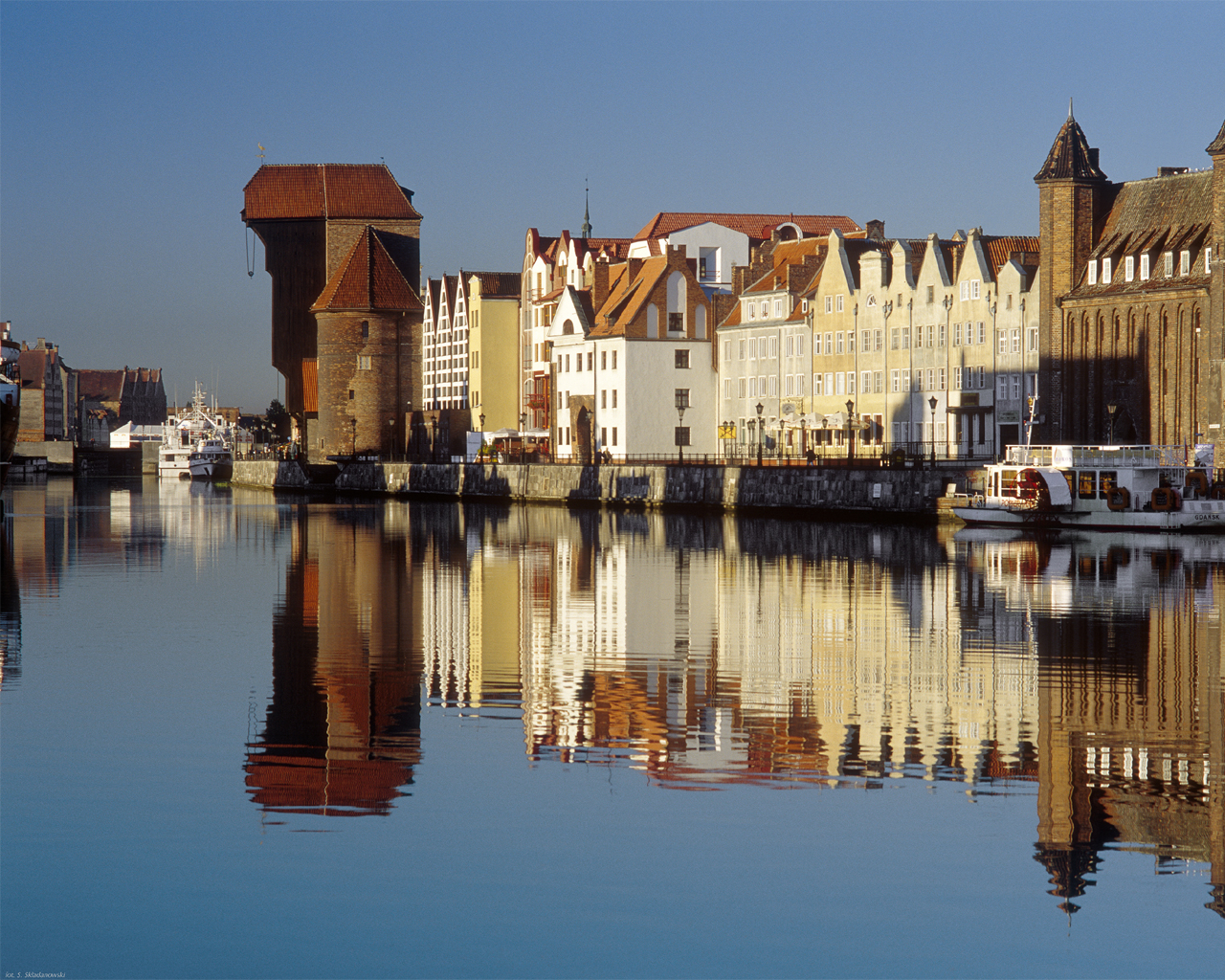
Artus Court
Artus Court is located in the historical center of Gdansk, near its old-time harbour by the Motlawa river. Its furnishings include reconstructed fire-place, 18th century sculptures ceramics from Delft, brass candle holders, a sizeable model of 1775 Gdansk ship, among the other numerous artworks of Artus Court.
Much more information of Gdansk Artus Court is available at:
http://en.wikipedia.org/wiki/Artus_Court

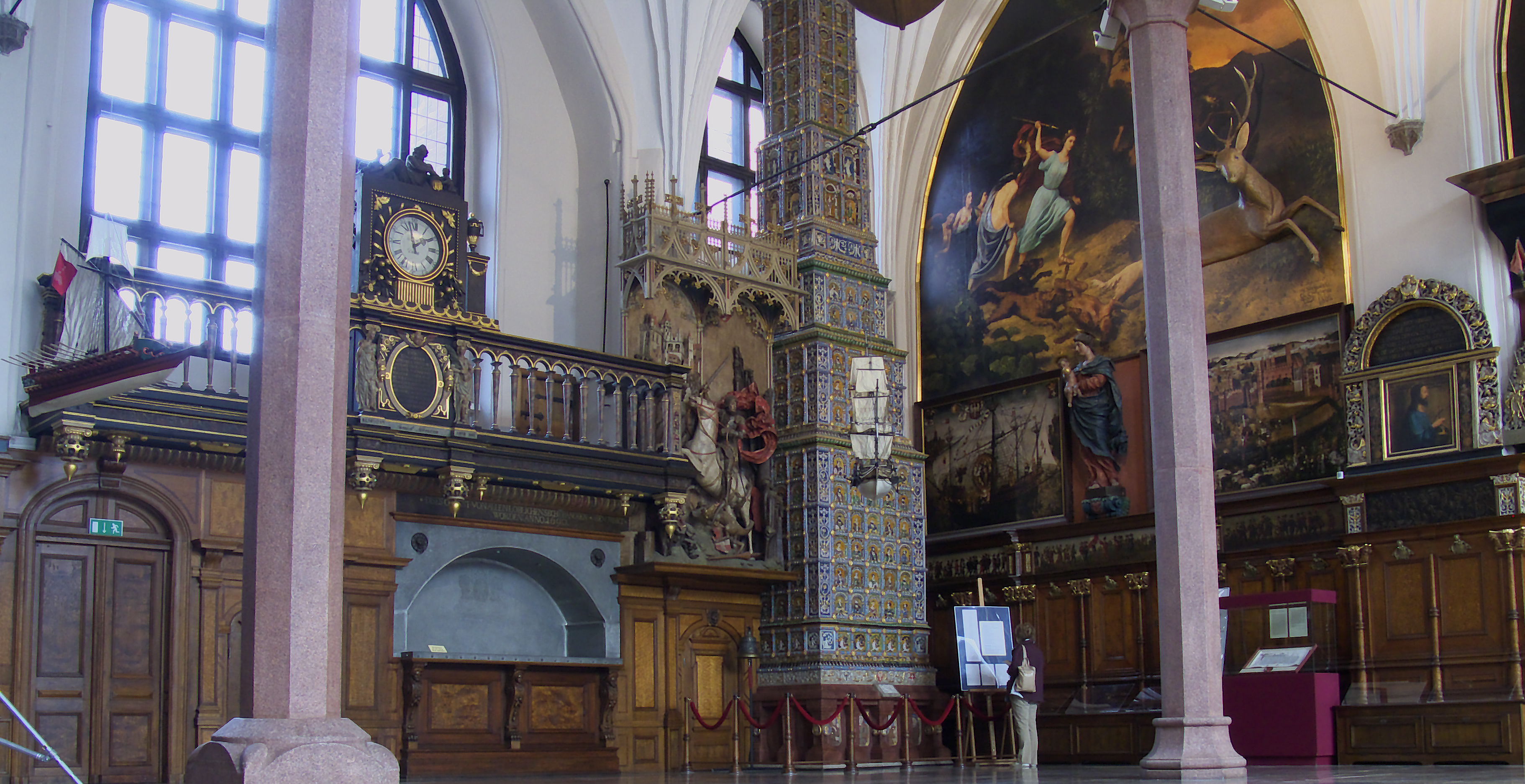
More Information about Tricity region:
Tricity Tourist GuideGdansk
Sopot
Gdynia
Malbork Castle Museum
^^^ Back to top
Keynote Speeches
EuroSymposium'2007
EuroSymposium'2013
EuroSymposium'2014
EuroSymposium'2015
^^^ Back to topPrevious Symposia
AIS SIGSAND European Symposium, Ireland, 2006
2nd AIS SIGSAND European, Poland, 2007
3rd AIS SIGSAND-European Symposium Germany, 2008
4th EuroSymposium, Poland, 2011
EMMSAD/5th EuroSymposium @ CAiSE'12, Poland, 2012
6th EuroSymposium, Poland, 2013
7th EuroSymposium, Poland, 2014
8th EuroSymposium, Poland, 2015
Downloads
Download Call for Papers (PDF)
Download EuroSymposium Poster (HQ)
Contacts
EuroSymposium 2016
Department of Business Informatics
Faculty of Management
University of Gdansk
Piaskowa 9
81-864 Sopot
Poland
phone: +48 58 5231400
fax: +48 58 5231155
skype: swrycza
e-mail: info@eurosymposium.eu
website: http://eurosymposium.eu/
